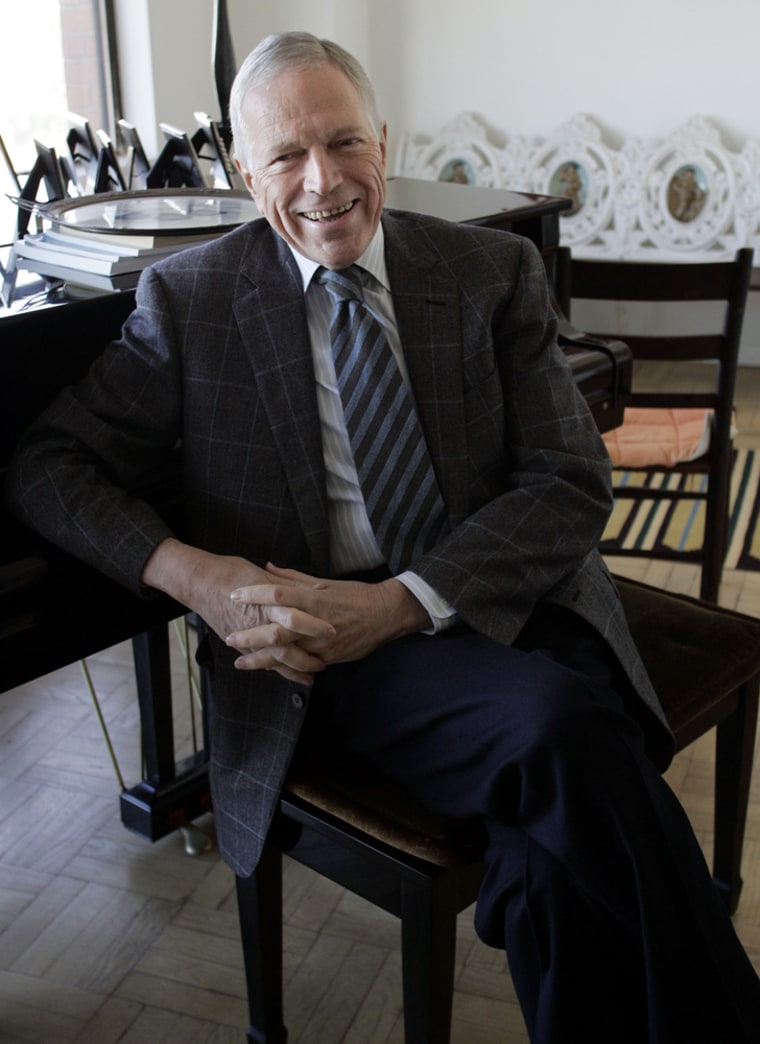An American economist who developed theories about unemployment that better capture how workers and companies actually make decisions about jobs has been named winner of the 2006 Nobel Memorial Prize in Economic Sciences.
Edmund S. Phelps, 73, a professor at Columbia University in New York, was cited Monday for research into the relationship between inflation and unemployment, giving governments better tools to formulate economic policy.
The Royal Swedish Academy of Sciences, which announced Phelps’ selection in Stockholm, Sweden, said in its citation that “Phelps’ work has fundamentally altered our views on how the macroeconomy operates.”
Americans have swept all the Nobels announced so far this year, with Phelps being the sixth named for one of the prestigious awards. The economics prize carries an award of $1.4 million.
Two other Nobel prizes have yet to be announced — the winner of the prize for literature will be announced Thursday, followed by the Nobel Peace Prize on Friday.
Phelps told reporters in his New York apartment that he learned of the prize in a phone call from Sweden that woke him early in the morning.
He said he had waited for the award for a long time, but wasn’t expecting it this year.
“I thought for a time I would get it in my 60s, then I thought I would get it in my 70s and, more recently, I’ve been thinking that I would get it in my 80s,” he said.
He planned to teach his Monday class at Columbia — and share some champagne with his colleagues.
Phelps was born in Chicago and earned his bachelor’s degree at Amherst College in Amherst, Mass., in 1955 and his Ph.D. at Yale University in 1959. He has been the McVickar professor of political economy at Columbia since 1982.
The Swedish academy cited research by Phelps which challenged the prevailing view in the 1960s that there was a predictable tradeoff between inflation and unemployment. That view held that any government wanting to reduce joblessness by stimulating the economy would have to tolerate rising prices as a result.
Phelps argued that this view didn’t take workers’ or companies’ decision-making into account, and his research showed that their expectations about both unemployment and inflation affected their actions.
Phelps told reporters Monday that his goal was to make economic theory better reflect the real world.
“I’ve been interested in trying to put people in a more realistic way into our economic models,” Phelps said. “In particular I’ve emphasized that people have to form expectations about the current state of the world and also expectations about the future, including the consequences for the future of their actions in the present.”
He said this isn’t easy because people make decisions with incomplete information about the state of the world and how the economy works.
“It’s a great big mess, but I think the messiness was not sufficiently appreciated earlier,” he said.
John B. Taylor, a professor of economics at Stanford University in California, who worked earlier on projects with Phelps at Columbia, called the award “a great honor ... for a brilliant man who has made many contributions to economics.”
He said Phelps did his work at a time economists believed that a government couldn’t lower unemployment without triggering inflation.
“He said, let’s look at the decisions the workers and the firms make,” Taylor said. “They’ll make their decisions on real factors — productivity, the state of demand in that market, things like that. So the overall inflation rate can be higher or lower, but there will be the same unemployment rate.”
In its citation, the academy said that Phelps had advanced the understanding of the trade-offs between full employment, stable pricing and rapid growth, all of which are the central goals of any sound economic policy.
The economics prize has been given out annually since 1969.
Last year’s winners were Robert J. Aumann, a citizen of Israel and the United States, and American Thomas C. Schelling, for their work in game-theory analysis.
The economics prize is the only one of the awards not established in the will left by Swedish industrialist Alfred Nobel 111 years ago.
The medicine, physics, chemistry, literature and peace prizes were first awarded in 1901, while the economics prize was set up separately by the Swedish central bank in 1968.
Last week, the Nobel medicine prize went to Andrew Z. Fire and Craig C. Mello for discovering a powerful way to turn off the effect of specific genes. John C. Mather and George F. Smoot won the physics prize for work that helped cement the big-bang theory of how the universe was created.
American Roger D. Kornberg won the prize in chemistry for his studies of how cells take information from genes to produce proteins, a process that could provide insight into defeating cancer and advancing stem cell research.
The Nobel prizes are presented Dec. 10, the anniversary of the death of their founder. The peace prize is awarded in Oslo and the other Nobel prizes are presented in Stockholm.
